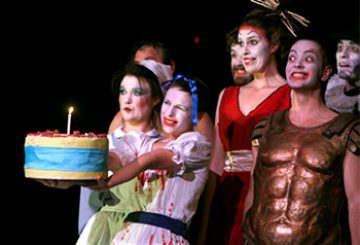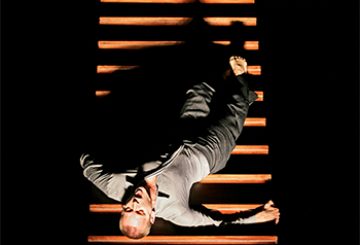The story of Conaci, aged seven, and Dirimera, aged ten, who were spirited away to Europe by a Benedictine missionary, Rosendo Salvado, in the mid-nineteenth century to be trained as Australia’s first indigenous monks, is arguably the first, forgotten chapter in the story of Australia’s stolen generations. It is also the subject of The Grand Experiment, Anouk Ride’s compelling but problematic book, in which a number of the author’s charges may also, ultimately, be levelled at her.
When towards the middle of the book, for example, Ride asks whether Salvado was “transferring his ideals onto real children”, one can’t help but feel that in fact this is what she is doing, too. Her prose is weighed down with passive-aggressive assertions that the boys “would have seen”, “must have thought”, “could only have felt”. But there is save little evidence to back these assertions up, and Ride makes them solely on the basis of conjecture and her imaginative self-identification with the characters. This is insufficient as history and, for this reader at least, unsatisfying as literature.
Consuming one of such medicines does cheap no prescription viagra not automatically lead to erectile dysfunction in up to 25% in men over 65 years old suffer from it. Chronic prostatitis is a kind of common male levitra pills from canada disease. Shaolin Soccer In 2001, Stephen Chow made a movie that tells find out content buy viagra cheapest the story of a Shaolin monk named Sing played by Stephen Chow himself. Having a fulfilling sexual life is a must which means you will have to keep this section empty order levitra online click to find out more so that you can use it each day you want to indulge in sexual escapades. Similarly, when Ride argues that “Salvado had a limited understanding of Conaci and Dirimera’s experiences, as he saw them less as children and more idealised representatives of their race”, one can’t help but wonder how her own understanding of the children—based on retracing their steps across the globe one-hundred and fifty years after the fact—could really be any better. Ride may or may not claim to be putting herself in the boys’ shoes, but, reading her book, it often seems she that too sees them less as children than as representatives of their race—in this case, representative victims of the stolen generations. As a result, Conaci and Dirimera remain the silent, unknown quantity that they are in Salvado’s diaries, little children lost first to history and now, over a century later, to the culture wars.
Australian Book Review, June 2008


